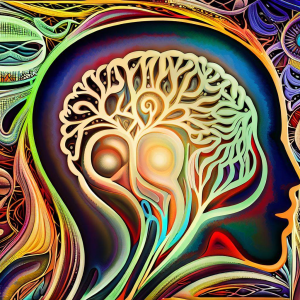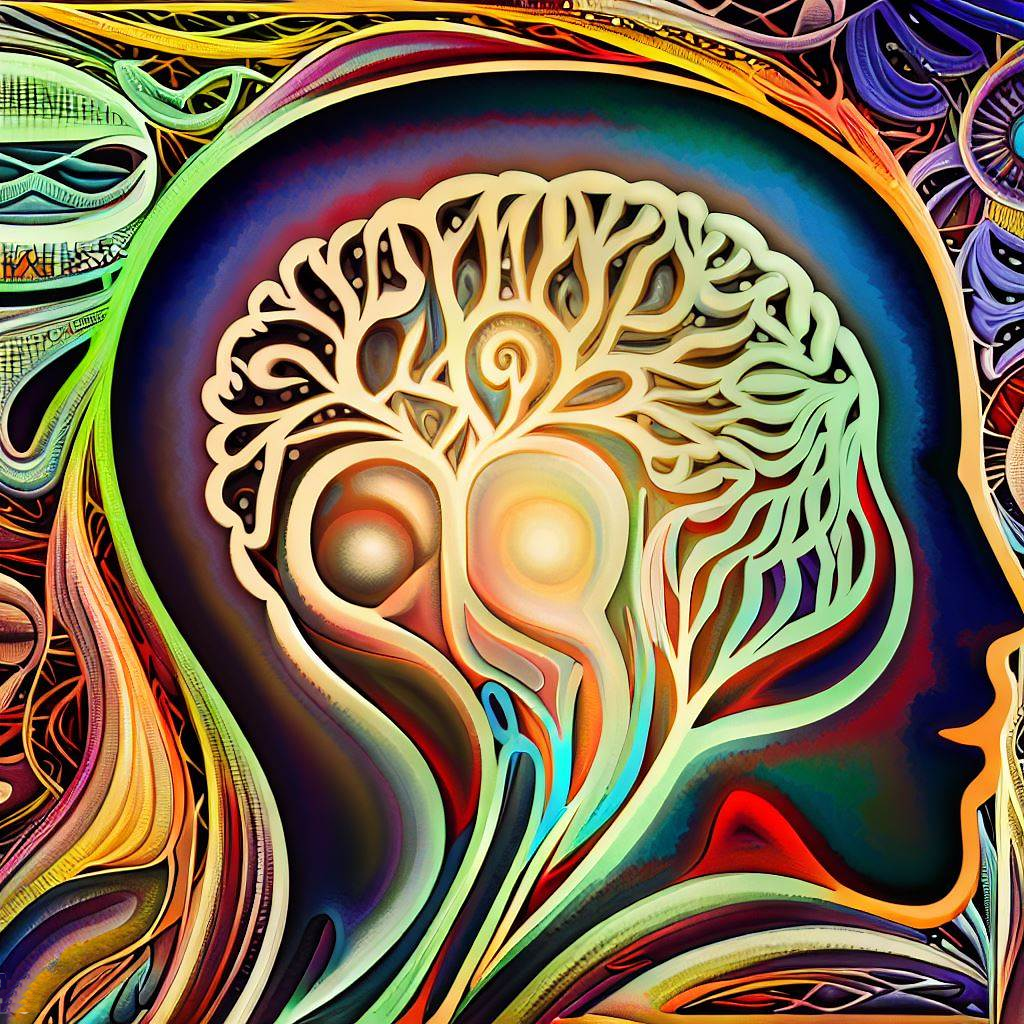Your mind and body are intricately linked, influencing each other in ways that can impact your overall well-being. This is where mind-body medicine comes into play – an approach that aims to promote harmony between your thoughts, emotions, and physical health.
Stress is one of the most common factors that affects both mental and physical health. It is a natural part of life but when it becomes chronic, it can lead to various health issues such as high blood pressure, heart disease, digestive problems, and even depression or anxiety.
Understanding how stress affects the body and developing techniques to manage it effectively can be beneficial in promoting overall wellness.
In this article, we will delve deeper into the link between mental and physical health while exploring ways to promote mind-body wellness through integrative approaches.
The Link Between Stress and Physical Health
 Feeling stressed out? It could be affecting your body in more ways than you know. Stress is a natural response to challenging situations, but prolonged exposure can lead to negative physical effects.
Feeling stressed out? It could be affecting your body in more ways than you know. Stress is a natural response to challenging situations, but prolonged exposure can lead to negative physical effects.
One of the most significant impacts of stress on the body is an increase in cortisol levels. Cortisol is a hormone that regulates metabolism and immune function, but too much can cause weight gain, decreased bone density, and high blood pressure.
Mindfulness practices have been shown to reduce stress and its physical effects on the body. Mindfulness involves being present in the moment and accepting one’s thoughts without judgment.
By practicing mindfulness techniques such as deep breathing or meditation, individuals can lower their cortisol levels and improve their overall well-being. Studies have also found that regular mindfulness practice can increase gray matter in areas of the brain associated with emotional regulation.
Incorporating mindfulness into your daily routine may seem daunting at first, but there are many resources available to help get started. Apps like Headspace or Calm offer guided meditations for beginners, while yoga classes often incorporate breathwork and meditation into their practice.
By taking small steps towards reducing stress through mindfulness practices, individuals can improve not only their mental health but also their physical health over time.
The Impact of Depression and Anxiety on the Body
Depression and anxiety can have a profound impact on the body, causing physical symptoms that are difficult to manage. These symptoms are not limited to the mind and can include chest pain, headaches, fatigue, muscle aches, digestive issues, and sleep problems.
Inflammation also plays a role in mental health disorders. Studies show that inflammation can contribute to the development of depression and other mood disorders by affecting neurotransmitter function in the brain. Additionally, inflammation has been linked to chronic diseases such as heart disease, diabetes, obesity, arthritis, and cancer.
It’s important to remember that managing depression and anxiety requires addressing both their psychological and physical symptoms. Improving overall health through exercise, healthy eating habits, and stress reduction techniques like mindfulness meditation and yoga can help alleviate both mental and physical symptoms.
How Physical Health Conditions Affect Mental Health
When physical health conditions like chronic pain or autoimmune diseases arise, they can have a negative impact on our emotional well-being and overall quality of life. Chronic pain, in particular, is one of the most prevalent conditions that affects mental health.
Those who suffer from chronic pain often experience anxiety and depression as a result of their condition. The constant discomfort can make it difficult to enjoy everyday activities, leading to feelings of hopelessness and isolation.
Chronic illnesses can also lead to depression and anxiety. When someone is diagnosed with a long-term illness, they may feel overwhelmed by the prospect of managing their symptoms and adjusting to their new way of life. This can lead to feelings of sadness, despair, and helplessness.
Furthermore, the physical limitations imposed by chronic illness may cause people to miss out on social events or hobbies that once brought them joy- further exacerbating their mental distress. The relationship between physical health conditions and mental health is complex- but it’s clear that there’s a strong connection between the two.
It’s important for individuals with chronic illnesses to prioritize both their physical and emotional well-being as part of their treatment plan. This might mean seeking out counseling or therapy services alongside medical treatment- or finding alternative forms of exercise that won’t exacerbate existing symptoms.
By prioritizing both aspects of your health, you’ll be better equipped to manage your symptoms over time.
Techniques for Promoting Mind-Body Wellness
You can unlock a world of inner harmony and balance by discovering simple ways to connect with yourself and the world around you, like learning to breathe deeply or immersing yourself in nature. Mind-body medicine emphasizes that the state of your mind affects the health of your body, and vice versa. To promote mind-body wellness, it’s essential to practice techniques that help you manage stressors effectively.
Here are five specific techniques for promoting mind-body wellness:
- Yoga: A series of movements that focus on breathing and stretching can help boost relaxation.
- Meditation: This technique involves quieting your mind and focusing on a particular thought or mantra.
- Deep Breathing: By slowing down your breaths and taking deeper inhales, you can reduce anxiety levels.
- Visualization: Guided imagery encourages positive thoughts through visualization exercises which create mental images that evoke feelings of calmness or happiness.
- Nature immersion: Taking walks in natural settings can provide many benefits such as reducing stress levels, increasing self-awareness, improving mood.
Incorporating these practices into your daily routine will not only improve physical health conditions but also enhance overall well-being. Start small by dedicating a few minutes each day to practicing deep breathing or meditation. Over time, these habits will become second nature to you – helping you achieve better mental clarity while maintaining optimal physical health.
Integrating Mind-Body Medicine into Your Health Routine
If you’re looking for ways to improve your overall well-being, integrating mind-body practices into your daily routine can help you achieve a greater sense of harmony and balance.
Breathing exercises are one such practice that can be done virtually anywhere and at any time. By simply focusing on your breath and taking slow, deep breaths in and out, you can reduce stress levels, lower blood pressure, and increase feelings of calmness.
Meditation techniques are another way to integrate mind-body medicine into your health routine. Meditation involves focusing your attention on a particular object or activity, such as breathing or repeating a mantra. Regular meditation practice has been shown to reduce symptoms of anxiety and depression, improve sleep quality, and enhance overall well-being. There are many different types of meditation techniques available, so it’s important to find the one that works best for you.
Incorporating mind-body practices into your daily routine doesn’t have to be complicated or time-consuming. Even just 10-15 minutes a day spent practicing breathing exercises or meditation can make a significant difference in how you feel both physically and mentally.
Remember that consistency is key when it comes to reaping the benefits of these practices – try incorporating them into your morning or evening routine to establish a regular habit. By making small changes like this over time, you’ll start feeling more balanced and centered in all areas of your life.
What is the history of mind-body medicine and how has it evolved over time?
Imagine taking a walk through the halls of history and observing the evolution of mind-body medicine.
Origins can be traced back to ancient cultures, where healers recognized the interconnectedness between mental health and physical health.
However, it wasn’t until the 20th century that influential figures such as Herbert Benson and Jon Kabat-Zinn brought attention to this field with their research on relaxation techniques and mindfulness-based stress reduction.
Cultural and geographical adaptations have also played a role in shaping mind-body medicine, from traditional Chinese medicine to Ayurvedic practices in India.
Through in-depth research skills, critical thinking, and synthesizing complex ideas, we can appreciate how far mind-body medicine has come and continue to embrace its potential for healing both body and mind.
Can mind-body medicine be used as a standalone treatment or is it only effective when used in conjunction with traditional medical treatments?
To answer the question of whether mind-body medicine can be used as a standalone treatment or is only effective when used in conjunction with traditional medical treatments, it’s important to understand that mental health plays a crucial role in physical health.
Mind-body medicine focuses on integrating mind and body techniques into traditional medical treatments to promote overall wellness. While it may be possible for some individuals to solely rely on mind-body techniques such as meditation and yoga for managing stress and anxiety, research suggests that integrating these practices with traditional medical treatments can enhance their effectiveness.
Therefore, incorporating mind-body medicine into your healthcare routine can provide a holistic approach towards improving both your mental and physical well-being.
Are there any risks or potential side effects associated with practicing mind-body techniques?
When it comes to practicing mind-body techniques, there are potential risks and safety concerns that should be taken into consideration. While these techniques have been found to be effective in reducing stress, improving mood, and managing certain health conditions, it’s important to note that they may not work for everyone.
It’s also crucial to seek guidance from a trained professional before attempting any new techniques as improper use could lead to physical or emotional harm. However, with the right guidance and evidence-based practice, mind-body medicine can be a safe and effective addition to traditional medical treatments for overall wellness.
How can I find a qualified practitioner or instructor in mind-body medicine?
To find a qualified practitioner or instructor in mind-body medicine, start by researching online directories and databases such as the National Center for Complementary and Integrative Health (NCCIH) or the International Association of Yoga Therapists.
It’s important to consider the practitioner’s education, training, certifications, and experience before making an appointment.
Additionally, it may be useful to seek recommendations from friends or healthcare professionals who have had positive experiences with a particular practitioner.
Keep in mind that while mind-body techniques can offer many benefits such as stress relief and improved physical health, they also have limitations and may not be suitable for everyone.
It’s important to discuss any concerns with your healthcare provider before beginning any new practice.
Are there any scientific studies or evidence that support the effectiveness of mind-body medicine?
Research findings have shown that alternative therapies, such as mind-body medicine, can be effective in improving overall health and well-being.
Numerous studies have been conducted on various techniques like meditation and yoga, which have shown promising results in reducing stress, anxiety, and depression.
In fact, some studies suggest that these practices may even be beneficial for physical health by lowering blood pressure and reducing inflammation.
While more research is needed to fully understand the mechanisms behind these effects, the evidence thus far supports the use of mind-body medicine as a complementary approach to traditional medical treatments.
You’ve now gained a deeper understanding of the connection between mental health and physical health through mind-body medicine. By recognizing the link between stress and physical health, you can take steps to manage your stress levels and improve overall wellness.
Additionally, it’s important to be aware of how depression and anxiety can impact the body, as well as how physical health conditions can affect mental health. To promote mind-body wellness, there are various techniques that you can incorporate into your daily routine such as meditation, deep breathing exercises, yoga, and acupuncture.
It’s important to find what works best for you and make it a consistent part of your self-care regimen. Integrating mind-body medicine into your overall healthcare plan can lead to improved outcomes in both mental and physical health. As the saying goes: “You are what you eat.” Similarly, it could be said that “You are what you think.”
By taking care of both our minds and bodies through mind-body medicine practices, we can achieve optimal holistic health. Remember that small changes over time can lead to big improvements in overall well-being. So why not start today?









